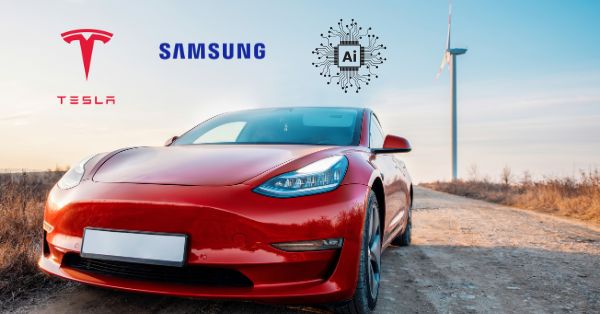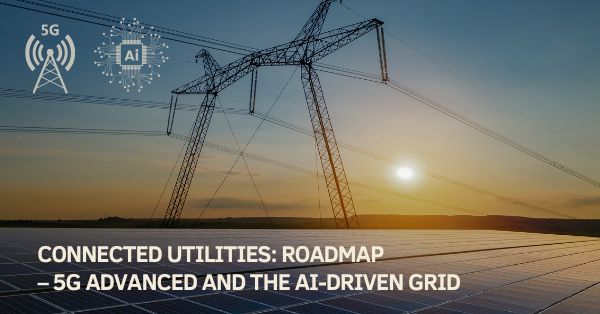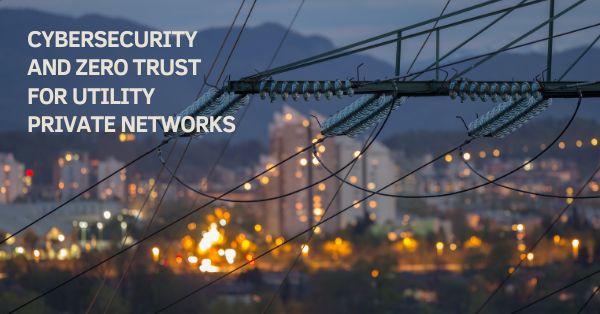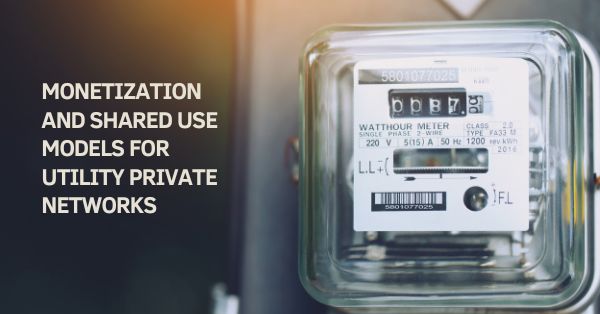Tesla has entered into a $16.5 billion agreement with Samsung to manufacture its next-generation AI6 chips. The move strengthens Tesla’s position in artificial intelligence hardware while providing Samsung with a critical contract for its advanced semiconductor business. Samsung’s new fabrication plant in Taylor, Texas, will serve as the central hub for the production of these chips.
AI6 Chips: Tesla’s Integrated Hardware Platform
Tesla’s AI6 chip, also referred to as Hardware 6, is designed as a single architecture that can scale across multiple applications. The chip will power Tesla’s Full Self-Driving (Supervised) system in its electric vehicles, serve as the core processing unit for the Optimus humanoid robots, and support large-scale AI training workloads in data centers.
By using a unified chip design, Tesla aims to streamline development across its AI ecosystem. This approach reduces hardware fragmentation, improves performance tuning, and allows Tesla to share advancements across its vehicle, robotics, and AI infrastructure platforms.
A Strategic Win for Samsung’s Semiconductor Business
For Samsung, this contract provides a major boost to its semiconductor foundry division, which has struggled to secure large-scale AI chip customers. The announcement of the deal pushed Samsung shares up nearly 7%, reflecting investor confidence in the company’s ability to compete with rivals such as TSMC and SK Hynix.
Samsung’s new Texas fabrication plant has faced delays and challenges in attracting key clients. With Tesla committing to a long-term supply agreement, the facility gains a high-profile customer that can anchor its production roadmap for years to come.
Tesla’s Multi-Supplier AI Chip Strategy
While Samsung will produce the AI6 chips, Tesla continues to work with TSMC on the AI5 generation (Hardware 5). The AI5 is primarily focused on enhancing the Full Self-Driving platform and is being produced in TSMC’s Taiwan factories, with future expansion planned for its Arizona facility.
Samsung currently manufactures Tesla’s AI4 chips, making the AI6 partnership an evolution of an existing relationship. This dual-supplier strategy allows Tesla to manage risk, secure supply continuity, and leverage competition between foundries to optimize cost and performance.
Tesla’s Role in Manufacturing Optimization
A unique aspect of the deal is Tesla’s direct involvement in the production process. Elon Musk confirmed that Tesla engineers will work alongside Samsung to improve manufacturing efficiency in the Texas fab. “This is a critical point, as I will walk the line personally to accelerate the pace of progress,” Musk posted on X. The close collaboration underscores Tesla’s commitment to controlling every aspect of its AI hardware pipeline, from chip design to final integration.
Impact on AI and Automotive Sectors
Tesla’s AI6 chip represents more than just an upgrade for electric vehicles. By designing a chip capable of running autonomous driving software, humanoid robotics control, and large-scale AI training, Tesla is building a unified computing platform that extends far beyond automotive applications.
For the automotive industry, the partnership highlights the growing need for custom AI silicon to enable next-generation driver assistance and autonomy. For the AI industry, Tesla’s investment signals the increasing convergence of robotics, edge AI, and cloud training systems on a shared hardware foundation.
Economic and Technological Significance
The $16.5 billion figure may only represent the starting point of the collaboration. Musk hinted that the actual value of the deal could be “several times higher” as Tesla scales production of AI6 chips for vehicles, robots, and data center deployments. The long-term nature of the agreement positions Samsung as a critical partner in Tesla’s AI roadmap for the next decade.
Beyond the immediate business impact, the partnership is expected to drive further innovation in advanced chip manufacturing, particularly in the U.S. market. Samsung’s Texas fab will become a major node in the domestic semiconductor supply chain, aligning with broader efforts to strengthen U.S.-based chip production.
Looking Forward: Scaling AI Infrastructure
As Tesla expands production of AI6 chips, the company is also laying the groundwork for future generations of AI hardware. The integration of AI6 into vehicles, robotics platforms, and AI training clusters is likely to influence the design of Tesla’s upcoming products and services.
For Samsung, the deal provides an opportunity to reestablish itself as a leader in high-performance AI silicon and secure a competitive edge in the global semiconductor race. The partnership between these two technology giants illustrates how the intersection of automotive, AI, and semiconductor industries is reshaping the future of intelligent systems.
This collaboration not only represents a significant business transaction but also marks a step forward in building the hardware foundation for advanced AI-driven mobility and automation technologies.































